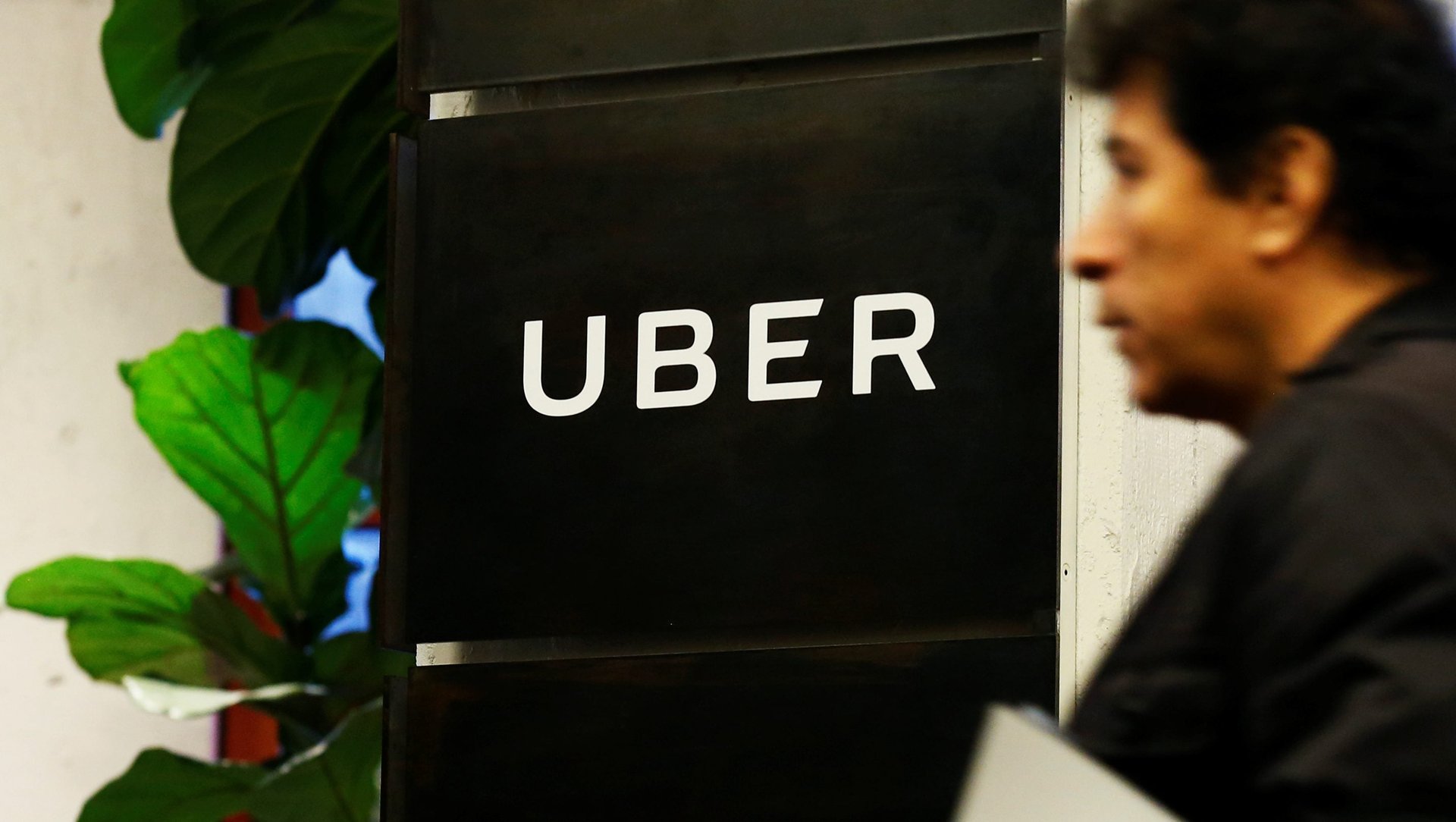A judge isn’t letting Uber silence the employee suing over changes to his stock options
Lenza McElrath joined Uber largely for the stock options.


Lenza McElrath joined Uber largely for the stock options.
He started as a software engineer in September 2014 with a base salary of $160,000 and equity-based compensation of 20,000 shares, then estimated to be worth $331,600. Uber said it would grant McElrath’s shares as incentive stock options (ISOs), a form of equity often reserved for management and highly valued employees because it comes with significant tax benefits. The options would vest over four years, and could be exercised—purchased at the agreed upon price—at a rate of 25% per year.
But only a few months into the job, McElrath says Uber changed its terms. The company notified McElrath that his right to exercise the options had been accelerated. What the company didn’t say, he contended in a complaint filed in federal court in California last December, was that the new exercise schedule also disqualified most of his options from being treated as ISOs. Exercising a non-qualified stock option (NSO) requires an upfront tax payment that can be many times the price of the option itself. McElrath alleges that this change made it “financially impracticable” for him and other employees to purchase their options as intended.
Stock options are a standard form of compensation at technology startups. Companies that might not be able to compete with a Google or Amazon on salary can nonetheless attract top talent by offering them equity packages with potentially unlimited upside. Stock-based compensation also helps ensure that employees will stick around to see their options vest and be loyal to the company, as they have a financial stake in its success. One problem with this compensation structure is that it usually requires the startup to go public for employees to see any payoff, something that has lately frustrated workers at companies like Uber and Airbnb, which are valued at tens of billions of dollars but reluctant to pursue an IPO.
In his complaint, McElrath alleges that Uber revoked ISO status from about 14,000, or 70%, of his options. He sued the company on Dec. 19, 2016, in a class action on behalf of all current and former Uber employees who were promised ISOs and then had the terms changed or who were otherwise limited in their ability to exercise options by Uber. (The complaint says McElrath believes the class has ”at least hundreds” of members.)
Uber is arguing that McElrath misread his employment contract, which states that options are treated as ISOs ”to the maximum extent allowed by the tax code.” The federal limit on ISO treatment is $100,000 worth of options, per person, per year. “We want our employees to have a real stake in Uber’s success, and we’re proud to offer equity compensation in service of that goal,” Uber said in a statement. ”Whereas our stock incentive plans are designed to work for all employees, we believe Mr. McElrath has misinterpreted his stock option agreement to benefit himself and his particular tax situation.”
Since February, Uber has tried to force the lawsuit to arbitration. The company argued in a filing that when McElrath took his job, he agreed to let “any claims arising out of his employment… including those related to equity” be resolved by binding arbitration. Pushing cases to arbitration is a favorite tactic of corporate America. Arbitration lets companies handle disputes quietly and out of the public eye. Arbitration agreements are also often coupled with class-action waivers, forcing claims to be brought individually.
The practice is controversial, particularly in employment settings, such as Uber’s. A US district court ruled last year that accounting firm Ernst & Young violated the National Labor Relations Act by requiring employees to sign an agreement that compelled them into individual arbitration on any legal claims over their hours, wages, or other conditions of employment. That case, Morris v. Ernst & Young, is now scheduled to be heard by the Supreme Court later this year.
On March 30, a federal judge stayed the proceedings in McElrath’s case against Uber pending a decision in Morris. The judge also denied Uber’s attempt to force the matter to arbitration, writing that it would “run afoul” of the existing ruling on Morris. Dozens of other companies—from AT&T to Neiman Marcus—are also waiting to see how the Supreme Court will rule in Morris. The high court has moved the case to its fall docket.
McElrath alleges that Uber “devised a fraudulent scheme” to recruit highly sought-after employees, then repeatedly breached equity agreements to gain ”millions of dollars of tax deductions.” Should his case ultimately proceed, it could draw unwelcome attention to the financial contortions of a startup said to be worth $68 billion at a time when its relationships with employees are already at a low.
Uber is foundering amid allegations of sexual harassment and a toxic culture, an escort-karaoke scandal, a regulatory scandal, and a parade of departing executives. The company is also facing a lawsuit from Waymo, the self-driving car unit spun off by Google parent Alphabet, that could bring its own driverless efforts to a screeching halt.